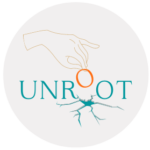Good practices regarding the prevention of GBV in all partner countries
AUSTRIA:
-
- Frauen und Kinder haben das Recht auf ein Leben frei von Gewalt. The EU campaign to prevent violence against women and children is based on this belief. Living FREE of Violence (GewaltFREI leben) is coordinated by the Federal Ministry for Education and Women’s Affairs and implemented by the association “Autonomous Austrian Women’s Shelters “(Verein Autonome Österreichische Frauenhäuser – AÖF) in cooperation with the Vienna Intervention Center against Violence in the Family (Wiener Interventionsstelle gegen Gewalt in der Familie) and the Austrian National Youth Council (Bundesjugendvertretung).
-
- Fabric.plant.graz is a sewing project for socially disadvantaged women of working age who are remote from the labour market and are registered in Graz. It enables women to make a tailor-made re-entry into the world of work. As part of an occasional occupation that gives the women a daily structure and contributes to improving their living conditions, they produce fashion items by processing fabrics regarding sustainability.
-
- Selbst♀*wert plus project: girls’ and women’s health centres from all Austrian provinces have joined forces to continue the same project but in a bigger scale. Since the pandemic and its consequences on mental health and access to opportunities, the Federal Ministry for Social Affairs, Health, Care and Consumer Protection has funded the selbst♀*wert project, to empower women and girls to live their lives self-determined, free from violence and to reduce long-term burdens for health. The project offers psychosocial support, counselling and advice (individually/in groups, in person and online), and workshops on topics such as self-esteem, mental health, eating problems, being a girl* / woman*, sexuality, menstruation, contraception, dealing with violence and much more.
-
- Campaign: Living FREE of Violence (GewaltFREI leben) is a two-year (2014-2015) campaign launched all over Austria to prevent violence against women and children. It aimed to intensify prevention activities in different sectors:
- In the health care sector: collaboration and support to hospitals. Managerial staff will be supported in the sustainable establishment of violence prevention standards and victims’ protection groups in the organisational structures of their hospitals;
- In the media: The campaign aims to support the media in the sensitive coverage of domestic violence against women and to encourage them to adopt the self-regulation routines outlined in the Istanbul Convention in order to enhance the protection of women;
- For children and young people: raising awareness on the meaning, causes, forms, consequences of GBV and where they can get help (also Living FREE of Violence organized the workshop You and Me to sensitise children and young people to violent situations, to raise their self-esteem and to provide information about available support services, reaching 1500 children and youngsters);
- For high-risk victims: in the view of the protection and safety of the women concerned, the project supported a model project for multi-institutional cooperation (in two police districts and with different individuals involved to discuss high-risk cases, the risk assessment and the safety planning;
- For immigrants: All information materials are published in several languages.
NETHERLANDS:
A Preventing sexual and gender-based violence against migrants and strengthening support for victims
On 1 October 2018, the PROTECT project (prevention of sexual and gender-based violence against migrants and strengthening support for victims) was launched. IOM Netherlands works together with partners Arq National Psychotrauma Center, Rutgers and Pharos to better integrate refugees, migrants and asylum seekers into the existing support services for SGBV (sexual and gender-based violence) and to build capacity for professionals who work with these groups, such as professionals in the regional Centers for Sexual Violence. Ambassadors with a migration background provide free and confidential information sessions to raise awareness, empower and inform the targeted migrant communities about SGBV and where to seek help. Migrant ambassadors play a crucial role in providing two-way information between migrant communities and professionals.
PROTECT supports closing the gap between migrants affected by SGBV and available support services through discussion and sharing experiences. More than a hundred professionals from medical institutions, police and protection, municipalities, migrant representation, LGBTQI+, academia and social support agencies in the Netherlands have shared their knowledge, experience, challenges and good practices about SGBV in migrant communities. A two-minute animated film explaining SGBV, designed for migrant audiences, and with subtitles available in Dutch and 22 other languages;
Implementation of the Beijing Declaration and the evaluation report of the Platform for Action
In recent years, a number of successful methods and projects have been funded. These include Own Strength, aimed at women who, for whatever reason, have more difficulty finding work, Kracht on Tour, an awareness program that seeks the involvement of local businesses and organizations, Education for Women with Ambition, which deals with acquiring basic skills such as reading and writing, How 2 Spend It (financial awareness and budgeting skills for women) and Single SuperMom (that single mothers on different different wants to mobilize ways, including setting up a network). All activities have reached a large number of women with a non-western background. This is important because this group still exhibits a low degree of economic independence. The Single SuperMom program focuses specifically on single mothers, another group with relatively low economic and financial independence.
Domestic violence is still a big taboo in the Netherlands. In this TV series “Fatal Love”, several people talk to their families about domestic violence. For the first time in 2022, this will be so openly discussed in the media. After this series, there has been more attention and space to talk about this. You can see that there is a great shame about this subject:
Healing together – #metoo conversation etiquette on this site you find an online booklet to communicate with someone about sexual violence in a healing way, it contains 10 tips. This is a project of Legien Warsosemito-Schenk and Stijn Schenk. Together they make products that can help to support survivors, keep the support figure afloat and the connection between loved ones.
GREECE:
Publication “Everything from scratch”
A result of collaboration between the Research Centre for Gender Equality (KETHI) and UNICEF, which started in 2018. The book attempts to demonstrate inherent stereotypes related to behaviours, roles and expectations attributed to boys and – often – associated with violent behaviours, but also to make everyone understand that victims, girls and boys, are never to blame and are not responsible for what happened to them.
Short film/video “Don’t ever leave me”: created by Mondelez’s Lacta, a chocolate brand that for years has been telling love stories in the form of branded entertainment films. The film shows ‘what a love story is not’, in order to raise awareness on domestic abuse and femicide. The film was designed by Ogilvy Greece in cooperation with Diotima, a Greek NGO focused on gender rights and equality. The campaign went instantly viral on social media, trending on both Twitter and YouTube (#1 trending video for 10 days; 1.2 million organic views in a country of 7 million internet users), with most major media outlets in the country reporting on it, causing a big discussion, ahead of November 25, 2021, the International Day for the Elimination of Violence Against Women. The campaign increased by 650% the traffic to Diotima’s website and increased eightfold the number of calls for help, even from child survivors. It has also been widely used by educators at schools.
CYPRUS:
Engaged in Equality – Challenging masculinities and engaging adolescent boys to end gender-based violence
Date: February 2022 – January 2024
The aim of the project is to question harmful hegemonic masculinity, challenge rigid gender stereotypes and roles and equally engage boys and girls in the fight for gender equality and justice.
The project will contribute to the prevention of gender-based violence among adolescents by raising awareness on the need to tackle the harmful effects of hegemonic masculinity and by developing comprehensive and effective strategies to prevent unequal power relationships between adolescents at the national and European levels. This will be achieved through an innovative and previously tested approach utilising audio-visual media and music and through the capacity building of teachers and educators. In this way, adolescent boys will be engaged as allies in the elimination of gender-based violence, adolescent girls will be empowered to reject abusive behaviours and relationships, and exchange, understanding and cooperation between boys and girls will be strengthened to jointly contribute to healthy and positive relationships.
Project activities include: developing training modules and practical tools for teachers and educators on gender-based violence prevention; awareness-raising activities for adolescent boys and empowerment activities for adolescent girls in schools through audio-visual media and music; peer-to-peer workshops among students on challenging hegemonic masculinity and building healthy relationships; a European Youth Forum and Teachers Seminar for mutual learning; and an awareness –raising campaign.
Coordinators: SURT (Catalonia, Spain)
Partners: Peace Institute (Slovenia), Istituto degli Innocenti (Italy), Institut für Männer- und Geschlechterforschung (Austria) and the Mediterranean Institute of Gender Studies (MIGS) (Cyprus).
EE: Boosting gender Equality in education
Date:December 2020 – November 2022
BEE is a two-year transnational project involving four European countries: Cyprus, Italy, Romania, and Lithuania.
The aim of the project is to eliminate gender stereotypes in early childhood education involving children and professionals at kindergarten, pre-primary and primary school levels. The BEE project focuses on seizing the opportunities provided through primary education to improve the educational context in relation to gender equality issues. It will be implemented in schools in Cyprus, Italy, Lithuania, and Romania offering training opportunities and free workshops with gender experts to education practitioners, as well as managerial and support staff.
Overall, the project will enrich the skills of primary school teachers to address gender stereotypes in the early childhood educational context, through the introduction of innovative educational interventions harmonized with the existing school curriculum. The project also aims to impact the wider society by raising awareness of how early childhood education can contribute to a more inclusive and just society.
Coordinators: COSPE, Italy
Partners: Mediterranean Institute of Gender Studies (Cyprus), Casa della Donna di Pisa (Italy), A.L.E.G. (Romania), Women’s Issues Information Centre (Lithuania).
BELGIUM:
The 16 Days of Activism Against Gender-Based Violence (GBV) campaign is an annual international event that begins on November 25 and ends on December 10, International Human Rights Day. It is used around the world by activists and organisations engaged in the fight against such violence to call for the prevention and elimination of such violence.
Mobilisons-nous contre les violences basées sur le genre ! | Medecins du Monde
(published 24 November 2021, accessed 14 July 2022)
Belgium has adopted a National Action plan for the Fight against Gender-Based Violence, which includes more than 200 measures and unites all levels of government.
“This plan unites all the country’s governments in a single objective: to strengthen the fight against gender violence, with prevention, protection and prosecution measures that will make it possible to reduce the number of victims,” Schlitz said in a statement.
The plan, of which the creation was based on principles set out in the 2016 Istanbul Convention, is the first legally binding instrument to combat violence against women in Belgium. (Belgium adopts national plan to combat gender-based violence)

